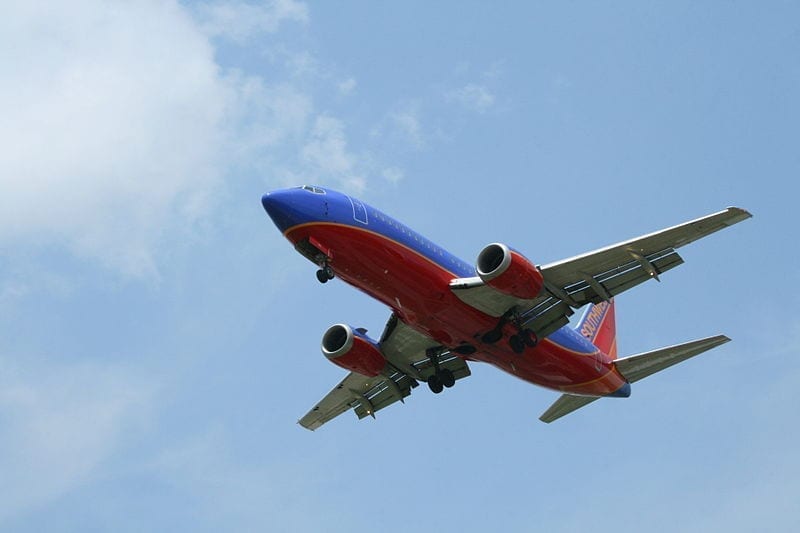A passenger may have accused Khairuldeen Makhzoomi of plotting a terror attack for uttering a common Arabic phrase.
An Iraqi-American student’s discrimination lawsuit against Southwest Airlines will proceed, despite the company’s attempts to secure a dismissal.
According to Reuters, the lawsuit was filed last spring. In it, Khairuldeen Makzhoomi claims to have been forcibly removed from a Southwest flight in 2016 after another passenger suspected him of being a terrorist.
Makhzoomi says a woman complained to flight attendants only after hearing him speak Arabic—and despite there being no reason for the airline to believe he was a throat, Makhzoomi was removed from the cabin. He was later interrogated by FBI agents and told that, while Southwest would offer him a full fare refund, it wouldn’t accommodate him on another flight.
Makhzoomi has since alleged that Southwest’s actions were baseless and motivated only by prejudice.
However, the company has since claimed that there’s “at most a scintilla of evidence” suggesting its flight attendants acted with racial animus. In fact, Southwest maintains that its employees’ decision to remove Makhzoomi and refuse him further accommodation was reasonable.
But in a Thursday ruling, U.S. District Judge Donna Ryu of Oakland, California, scrapped Southwest’s petition. In her judgment, Ryu said the plaintiff may be able to demonstrate that he was the victim of “Islamophobia,” perhaps enhanced by a “sensitive political climate.” Ryu further noted that the airline’s removal may have been pretextual.

“The case is moving forward, and we look forward to trial,” said Zahra Billoo, an attorney representing Makhzoomi in the suit. Reuters reports that the case is scheduled to move to trial in February next year.
Makhzoomi, adds The Independent, said the entire experience was tantamount to “public humiliation.”
While Makhzoomi is an American citizen, he was born in Iraq. Then a public policy student at the University of California’s Berkeley campus, Makzhoomi had booked a ticket from Los Angeles to Oakland. He’d just attended a United Nations dinner, which featured the organization’s general secretary, Ban Ki-moon.
After boarding the flight, Makhzoomi called an uncle an Baghdad, where he began excitedly relaying the day’s events. But a passenger seated in his proximity—who doesn’t speak Arabic—told flight attendants she heard the student using words “associated with martyrdom.”
“I would say the fact that “American” was said next to it, and I’m on a plane, I wasn’t sure what to make of it,” the woman said in an undated deposition. The Independent notes that the passenger’s name has been rendered anonymously in court documents.
Southwest customer service manager Shoaib Ahmed referred Makhzoomi to airport police. He was interrogate by airport officials along with the FBI.
Makhzoomi, though, says he didn’t use any of the words he was accused of saying—which included “ISIS,” “bomb” and “jihad.” Rather, his suit says suspicions may have been triggered by his use of the phrase “Inshallah,” a common Arabic term which simply means “god willing.” It’s often used to convey hopeful anticipation and can be deployed in a variety of situations.
Makhzoomi was released after an hours-long interrogation. Unable to transfer to another Southwest flight, he booked an outgoing ticket with Delta.
Sources
Southwest can be sued for bumping passenger who spoke Arabic: U.S. judge
Southwest is sued by Arabic speaker who was removed from plane


Join the conversation!